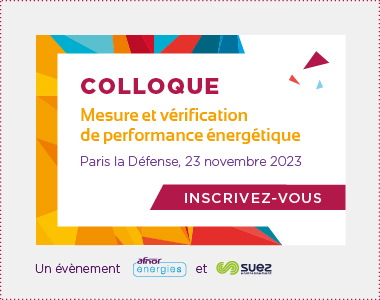Digital transformation and the digitization of the economy involve technologies that consume energy, mainly electricity: computer networks and terminals, data storage infrastructures, automated control solutions, artificial intelligence applications and systems, protection against cyber-threats, etc.
We now know that the digital sector contributes several percentage points to greenhouse gas emissions.
So, while digital technology avoids and replaces certain forms of pollution – for example, the environmental impact of paper manufacture and use – it also generates others, and must play its part in the decarbonization effort. Released in 2022, the AFNOR Spec 2201 guide provides the keys to eco-designing digital services, by reviewing the entire lifecycle.
Monitoring and controlling consumption: the sobriety objective
Datacenters are particularly concerned. As physical repositories for digital data, they house servers that consume large quantities of electricity, 24 hours a day, with the Joule effect that this entails: heat is generated, and must be dissipated if the equipment is not to be damaged. The heat is neutralized by powerful air-conditioning systems… which also consume electricity. To reduce the impact, there are several levers for action:
- design energy-efficient IT equipment
- designing efficiently controlled buildings
- using decarbonized energy

The energy efficiency of a data center has its own unit of measurement, the PUE(Power Usage Effectiveness), whose calculation method is described in the ISO/IEC 30134 series of standards. The digital sector is being called upon to contribute to the French government’s plan to reduce energy consumption.
In addition, on March 14, 2024, the European Commission adopted a regulation setting up a sustainability rating system for data centers. This text defines the information that centers with an installed computing power of over 500 kW must provide to the European database. It cites EN 50600-4-2 as the source for the definition and method of calculating total energy consumption (“EDC”, in kWh).
A dynamic of sobriety requires careful monitoring of consumption. AFNOR Energies puts its monitoring platform at your disposal, so you can track your energy performance, observe the impact of your improvement actions point by point, and adapt them according to your results.
ISO 50001 certification, proof of good energy practices
Data hosts and datacenter operators can also apply for ISO 50001 certification, to demonstrate their commitment to continuous improvement in energy management.
A precious sesame when, in a call for tenders, a client, particularly a public sector client, requires proof of good energy practices, as well as proof of IT security!
Key points to remember
- ISO 50001 certification available to data hosts and datacenter operators
- AFNOR Spec 2201 guide provides keys to eco-design of digital services


